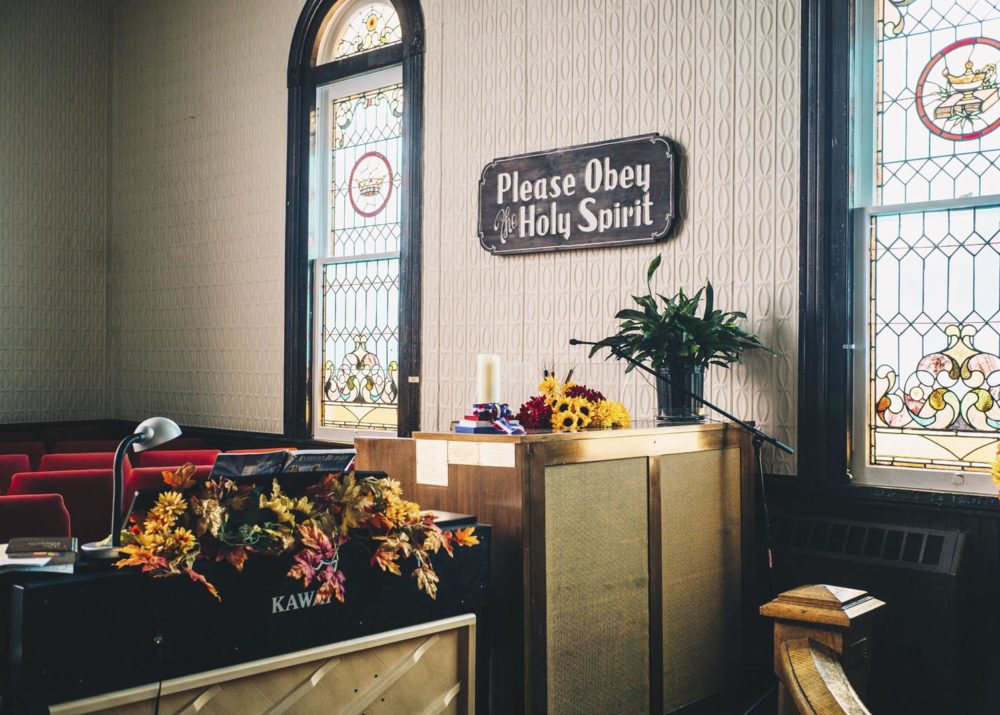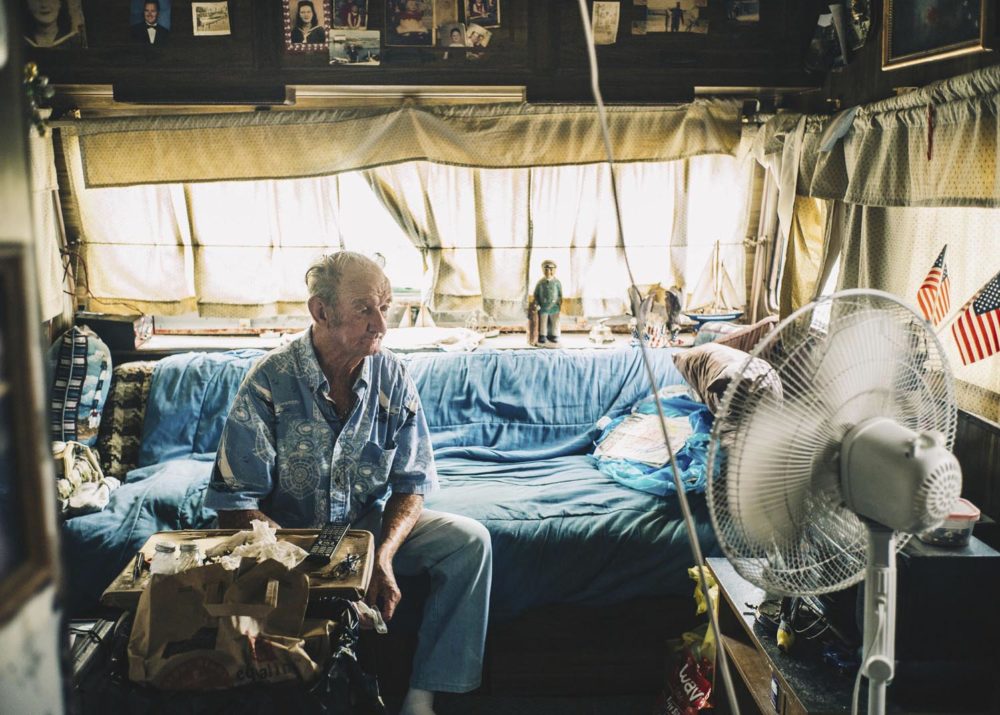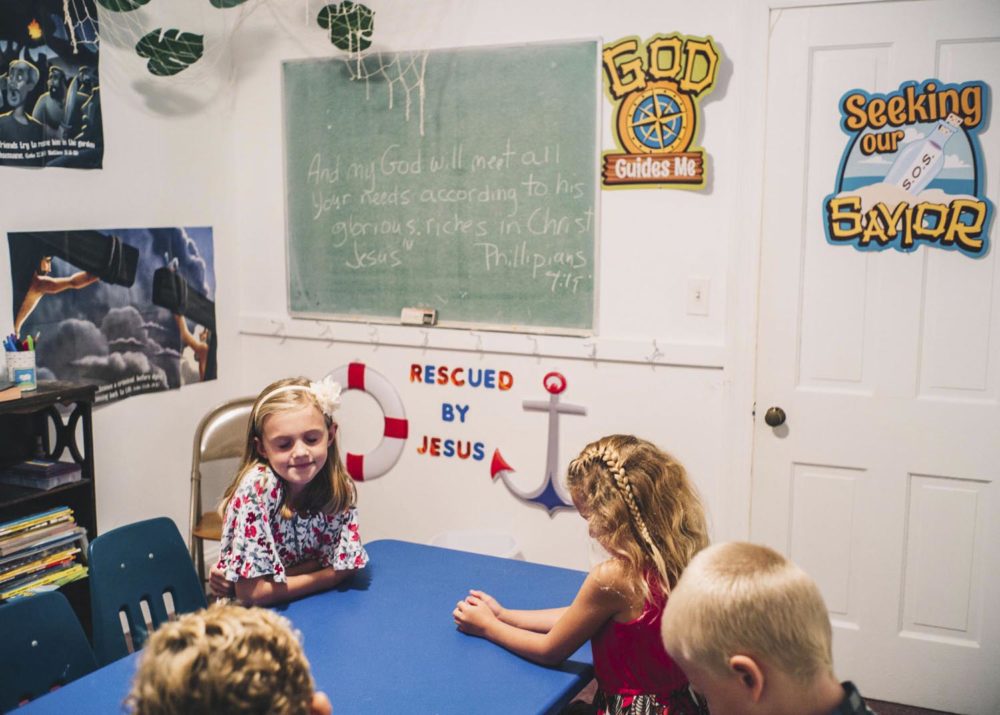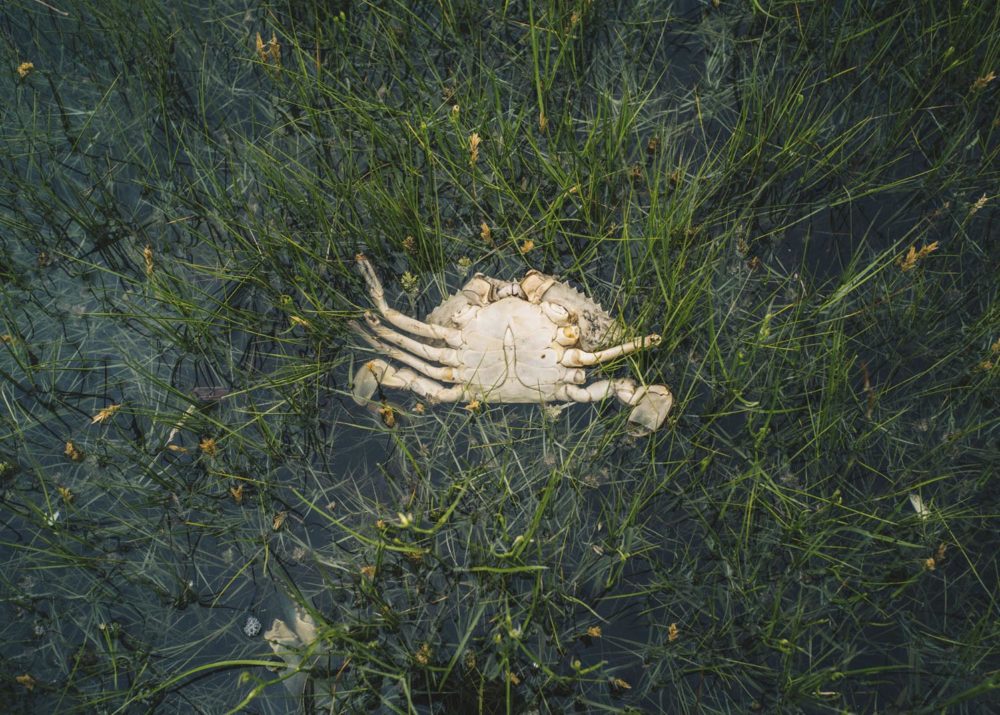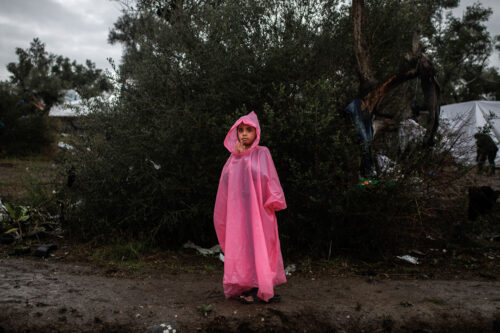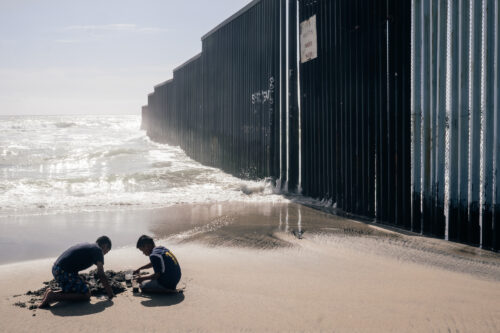Fotoserien
Sébastien Leban Tangier, the Lost Island
Die US-amerikanische Insel Tangier ist eine Metapher für das Absurde. Der Ozean, der die Insulaner seit Generationen ernährt, verschluckt das Eiland Meter für Meter. Und die meisten der 460 sehr konservativen und religiösen Einwohner*innen, die schon längst zum Symbol des Klimawandels auf dem amerikanischen Kontinent geworden sind, lehnen die Theorie der globalen Erwärmung ab. Seit den ersten kartografischen Aufzeichnungen um 1850 hat Tangier zwei Drittel seiner Fläche verloren. Die Sumpfgebiete weiten sich dagegen aus. In der Chesapeake Bay steigt der Meeresspiegel um fünf Millimeter pro Jahr – fast doppelt so schnell wie der Durchschnitt. Wenn Washington, das nur 160 Kilometer entfernt ist, keine schnelle Lösung vorschlägt, könnte der Mythos von Atlantis Realität werden: Ohne Deiche verschwindet die kleine Insel im Bundesstaat Virginia in 25 Jahren komplett im Wasser. Und die Bewohner*innen werden dann zu den ersten Klimageflüchteten in den USA gehören.
- Klima
- Religion
- Trump
- USA

*28. Mai 1987 in Florange, Frankreich
Sébastien Leban begann als fotografischer Autodidakt und arbeitet aktuell als freier Fotojournalist für verschiedene Medien, darunter Le Monde, NEON und National Geographic France. 2013 zog er für zwei Jahre nach Israel, um den israelisch-palästinensischen Konflikt zu dokumentieren. Aktuell arbeitet er verstärkt zu Klimawandelfolgen und den sich verändernden Lebensbedingungen bereits schwer betroffener Gesellschaften.

